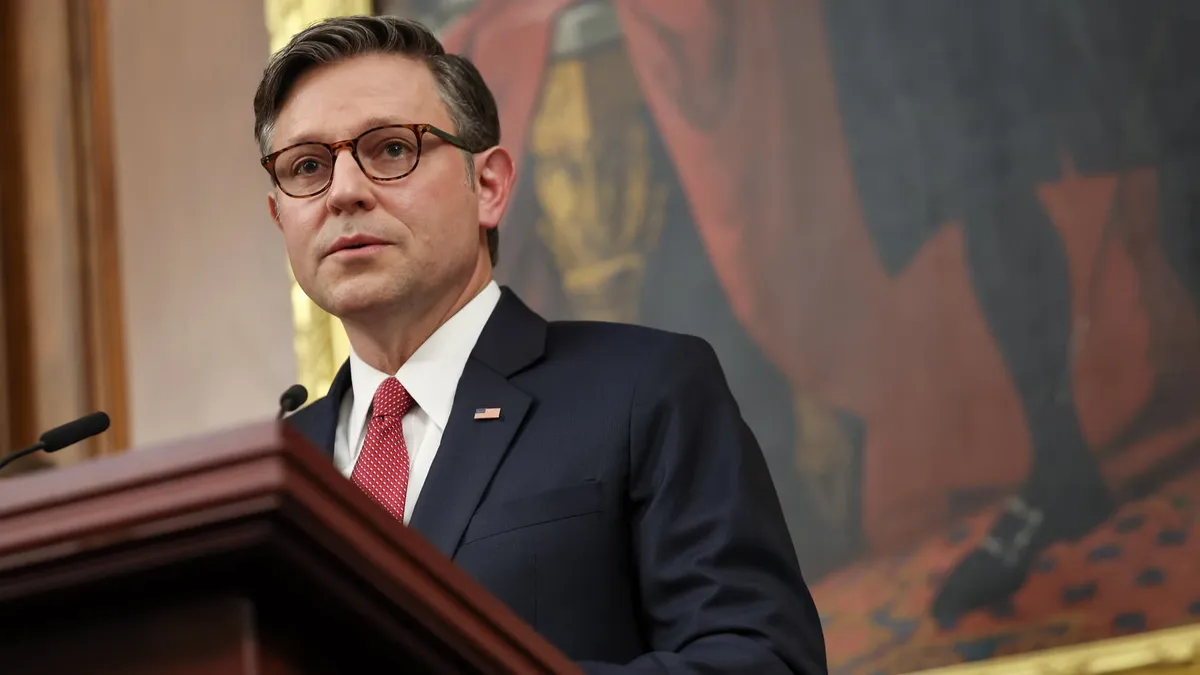
On Tuesday, House Speaker Mike Johnson, a Republican from Louisiana, made a significant statement regarding the War Powers Act, declaring it unconstitutional. Johnson emphasized that a pending resolution aimed at prohibiting U.S. military action in Iran under this law will not pass in the House. His remarks come in the wake of President Donald Trump's recent decision to authorize strikes on Iranian nuclear targets, which Johnson argues falls within the president's powers as outlined in Article II of the U.S. Constitution.
During a press briefing, Johnson articulated his belief that many constitutional scholars support the view that the Nixon-era War Powers Act, which restricts the president's ability to engage in military action without congressional approval, infringes upon the powers granted to the president under Article II. "I think that's right," Johnson stated, noting that the Constitution explicitly grants Congress the authority to declare war—a power that has remained largely dormant since World War II.
Johnson pointed out that the Constitution designates the president as the commander in chief of the armed forces, which provides significant authority over military operations. Historically, previous presidents have engaged in military actions without obtaining prior approval from Congress, and experts suggest that neither Congress nor the courts are likely to act decisively against Trump following the recent military strikes.
The War Powers Resolution of 1973 mandates that the president must inform Congress within 48 hours of deploying armed forces when war has not been formally declared. Additionally, this law stipulates that military engagements must cease within 60 days unless Congress formally declares war or grants an extension. This raises critical questions about the balance of power between the legislative and executive branches, especially in the context of ongoing conflicts in the Middle East.
In a recent development, Rep. Thomas Massie from Kentucky, along with Democratic Rep. Ro Khanna of California, introduced a War Powers resolution aimed at preventing unauthorized military hostilities in Iran. This resolution has garnered support from over a dozen House Democrats, and a similar measure has been proposed by Sen. Tim Kaine from Virginia in the Senate. Notably, the resolution is classified as privileged, which could expedite its passage to a House vote despite Speaker Johnson's opposition.
However, Massie indicated that he would refrain from advancing his resolution if the ceasefire between Iran and Israel remains intact. In a recent update by Politico, this development suggests a cautious approach amid the ongoing geopolitical tensions. Furthermore, President Trump has publicly criticized Massie for his dissent against a significant tax-and-spending bill, labeling him a "Third Rate Congressman" on social media.
In his comments on Tuesday, Speaker Johnson mentioned that he had inquired with Massie about the relevance of the resolution in light of Trump's ceasefire announcement. Massie reportedly responded affirmatively, suggesting that the resolution might indeed be moot. Johnson expressed hope that further action would not be necessary, stating, "I hope we don't, because I think it would be a terrible look, and it will not pass the House because it's inappropriate and it's not a proper use of the law anyway."
As the situation evolves, the implications of these discussions around the War Powers Act and military engagement in Iran continue to be a topic of critical debate among lawmakers and constitutional experts alike.